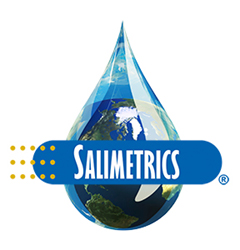
“Not only is it important to match the type of oral fluid required to the test, but designing a protocol that maintains sample integrity from mouth-to-bench can be critical to a successful application.”
CARLSBAD, Calif. (PRWEB)
August 19, 2020
“How can we help?”, asks Hans Schroeder, CEO of both Salimetrics LLC and SalivaBio LLC, businesses dedicated to Salivary Bioscience for more than twenty years. Together with Douglas Granger, Ph.D., founder of Salimetrics and co-editor of the recently published book by Springer, “Salivary Bioscience: Foundations of Interdisciplinary Saliva Research and Applications,” and Steven Granger, Ph.D., Chief Scientific Officer at Salimetrics, the three owners have championed saliva as a non-invasive, easy to collect sample that can provide meaningful information to the diagnostic and research communities. “Our team has studied saliva – our experts know how to collect it, how to handle it, how to process it, how to test it, and working closely with the scientific community, we are connected to the leaders in the field who know how to interpret the results.” Salimetrics’ COVID-19 efforts include providing collection devices for molecular testing; developing a new collection device that optimizes sample collection specific for infectious disease antibody testing; working with researchers on a high-sensitivity, high-specificity COVID-19 saliva antibody test; developing its own COVID-19 saliva antibody test for serology research use only; and operating its SalivaLab with BSL-2 safety in support of the salivary bioscience research community.
Early in the COVID-19 pandemic, Salimetrics began working with researchers and companies to increase capacity for low-cost saliva-based testing alternatives. Done right, saliva is safe, fast, and easy to self-collect for most people. Demand for COVID-19 testing from other specimens, like nasopharyngeal swabs, was limited by the supply chain, and NP swab specimens are significantly more complicated and uncomfortable to collect. In contrast, SalivaBio’s Saliva Collection Aid (SCA) makes saliva easy to collect; works with many different brands of standard laboratory tubes; and could be quickly scaled to support the substantial increase in needed testing capacity, making saliva a viable choice in the fight against COVID-19. “We needed to be ready”, says Doug Granger, Ph.D., “so our team made the investment in infrastructure ahead of time to ensure we could be counted on when the time came.” Salimetrics will have the capability to supply two million SCAs per month as early as September, four million per month as early as October, with the potential of more than twenty million per month by the end of the year. The increased capacity will come with additional investment.
With the FDA’s recent announcement issuing an EUA to Yale for its SalivaDirect test for rapid detection of SARS-CoV-2, rapidly expanded COVID-19 saliva testing is now possible. Additional announcements by the University of Illinois and the NIH RADx initiative show that saliva is an important tool in the fight against COVID-19. Because it is easy to collect for most people, it is both possible and practical to collect saliva frequently, and Salimetrics, based on its years of dedicated experience to salivary bioscience, provides a Saliva Collection Handbook, Saliva Collection Training and collection videos to make this happen. Saliva is a complex oral fluid, and how saliva samples are collected, handled and stored prior to analysis is often misunderstood. “Not only is it important to match the type of oral fluid required to the test, but designing a protocol that maintains sample integrity from mouth-to-bench can be critical to a successful application,” says Supriya Gaitonde, Ph.D., Salimetrics Senior Applications Scientist. “That’s where the team at Salimetrics comes in; our SalivaBio collection devices collect the right sample type, and our validated line of methods go beyond the device itself to enable proper saliva collection methodology, handling, and transport.”
SalivaBio also offers custom engineered solutions, recently developing a new collection device that optimizes sample collection specifically for infectious disease antibody testing. This device, the Saliva Collection Aid – OMT, collects an enriched fluid sample by specifically targeting collection at the gumline where antibody concentrations are the highest, thereby increasing the suitability of saliva. “The SCA-OMT has demonstrated its ability to collect samples with substantially higher concentrations of Total IgG, reducing the likelihood of inconclusive results”, says Steve Granger. “This is critical for the ramp-up in COVID-19 antibody testing which is soon to come. We’ve leveraged our knowledge in the development of simple, elegant design solutions for collection devices. If you want to collect the right sample, at the right time, while maximizing participant compliance, we can help.”
To learn more about the SalivaBio collection devices offered exclusively through Salimetrics, researchers can visit the Salimetrics website, the SalivaBio website, or contact Salimetrics’ support.
About SalivaBio:
SalivaBio is dedicated to the creation of a global standard for collection devices and techniques, as well as the development of new, cutting-edge saliva collection methods to increase ease of use and participant compliance. Exclusively from Salimetrics, all SalivaBio products are extensively tested to minimize or eliminate variability from saliva collection and have been optimized for collection with participant-specific groups.
About Salimetrics:
Salimetrics assay kits and CLIA-certified testing services are used to measure salivary analytes related to stress, behavior and development, inflammation, sleep, reproduction, health and immune function. Founded in 1998 by Douglas A. Granger, Ph.D., Salimetrics, LLC supports CROs, pharmaceuticals, academic researchers and the immunodiagnostic industry around the world with innovative immunoassay products, non-invasive saliva collection methods, and laboratory testing services.
Share article on social media or email:

